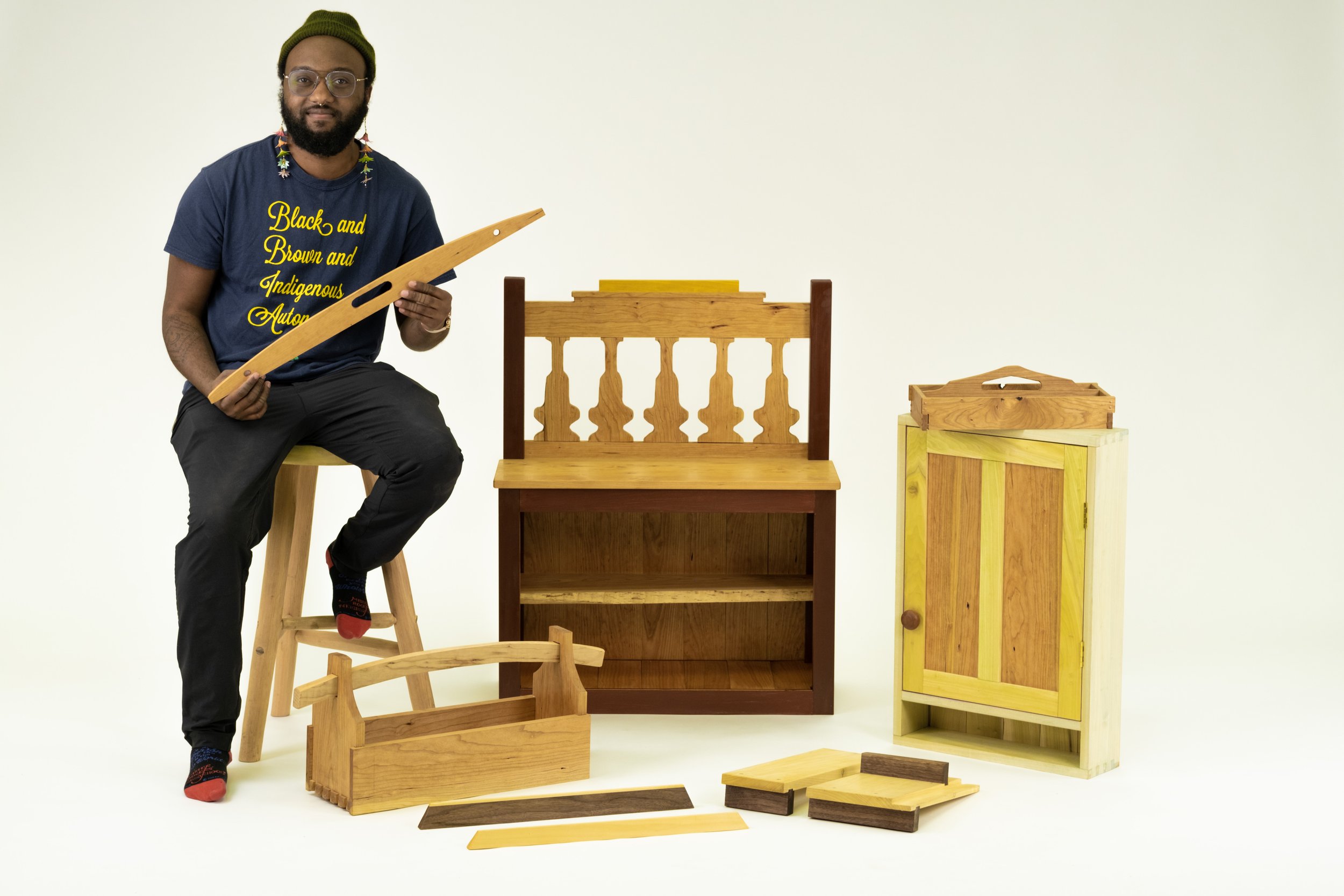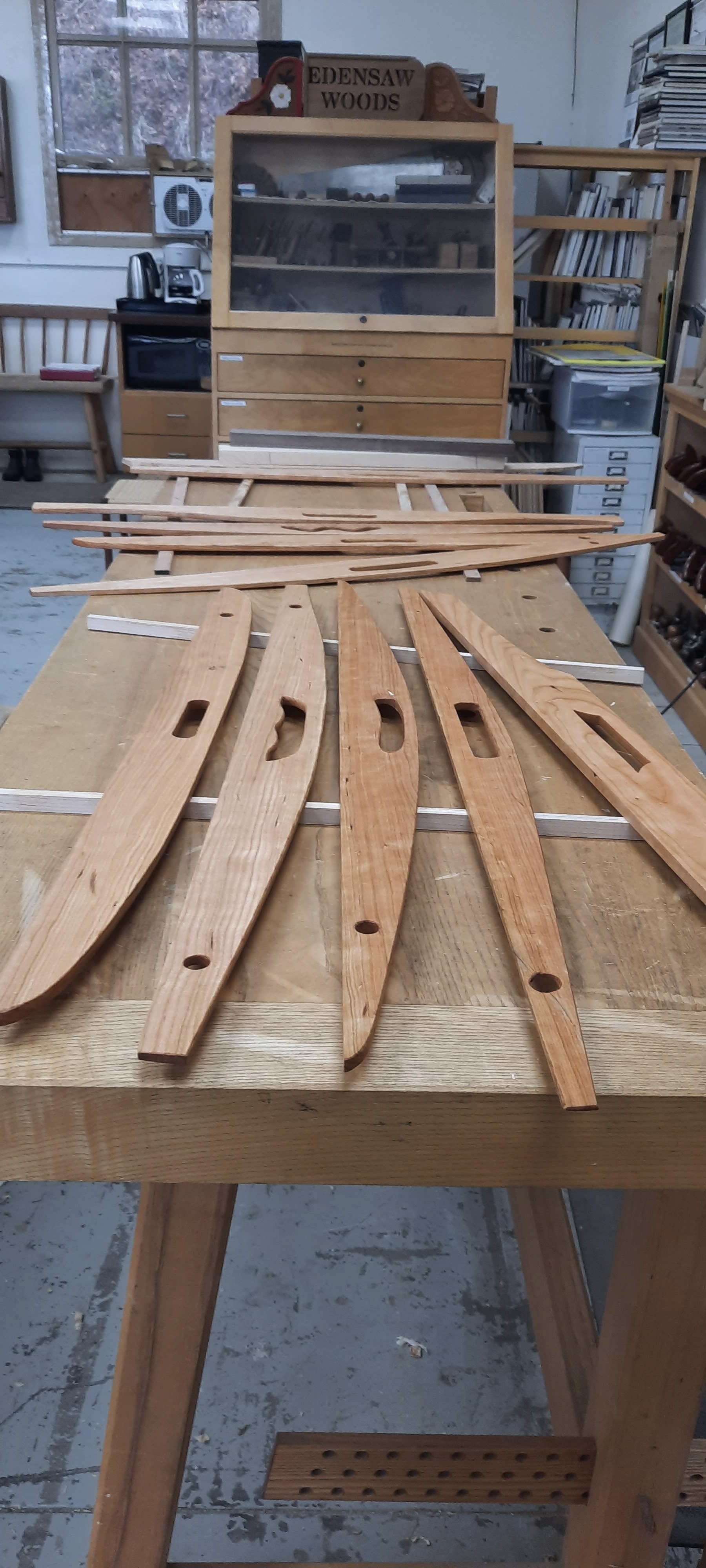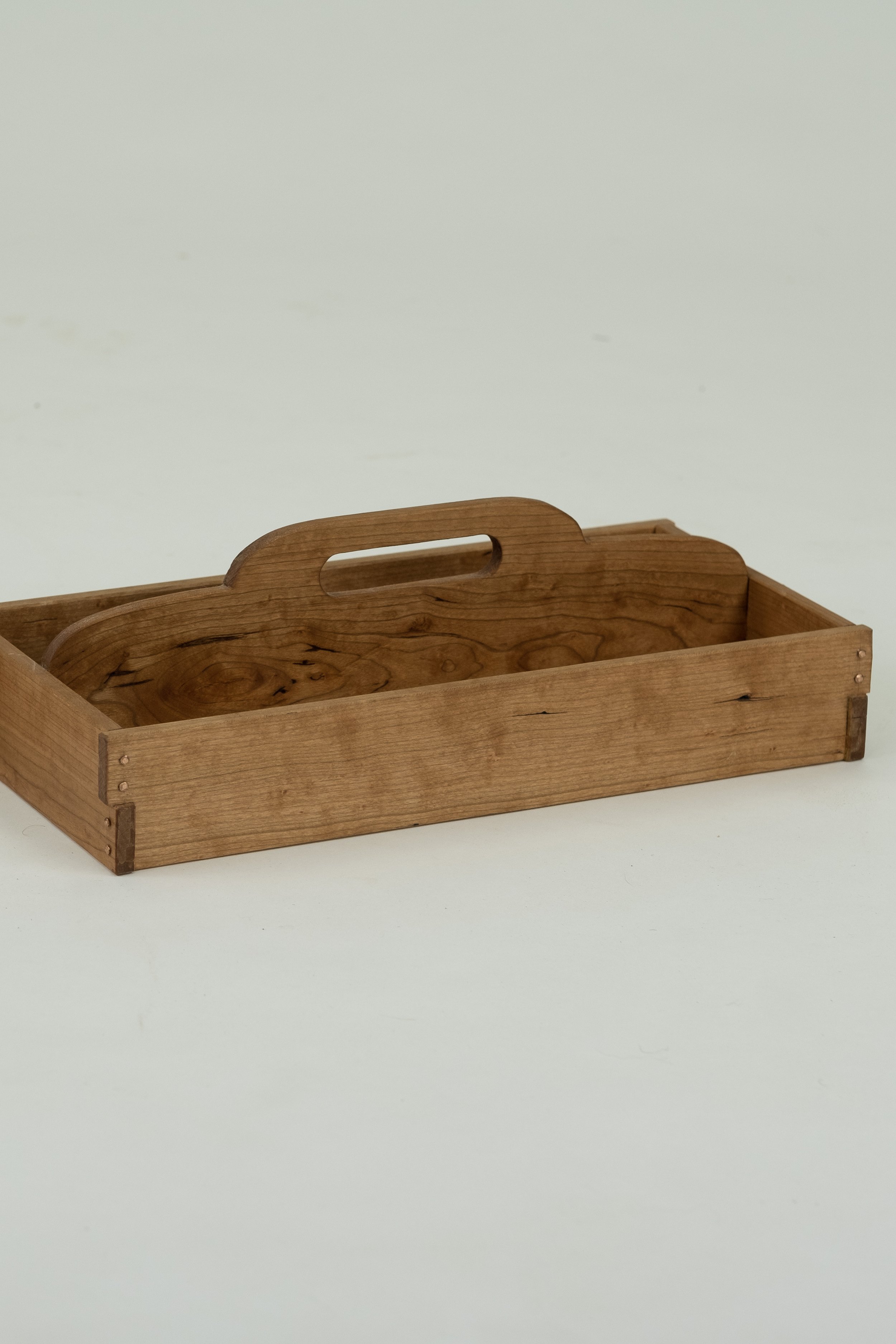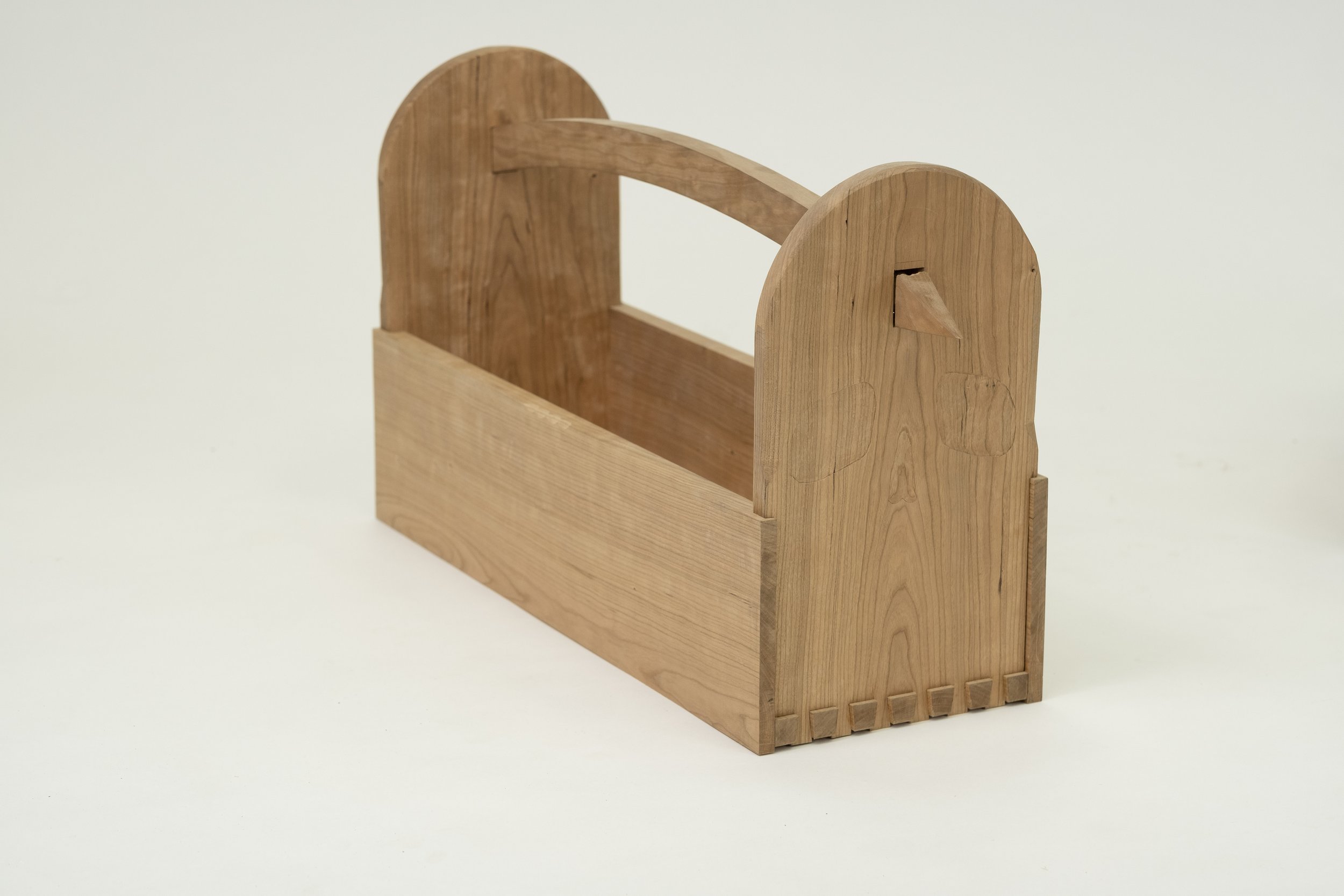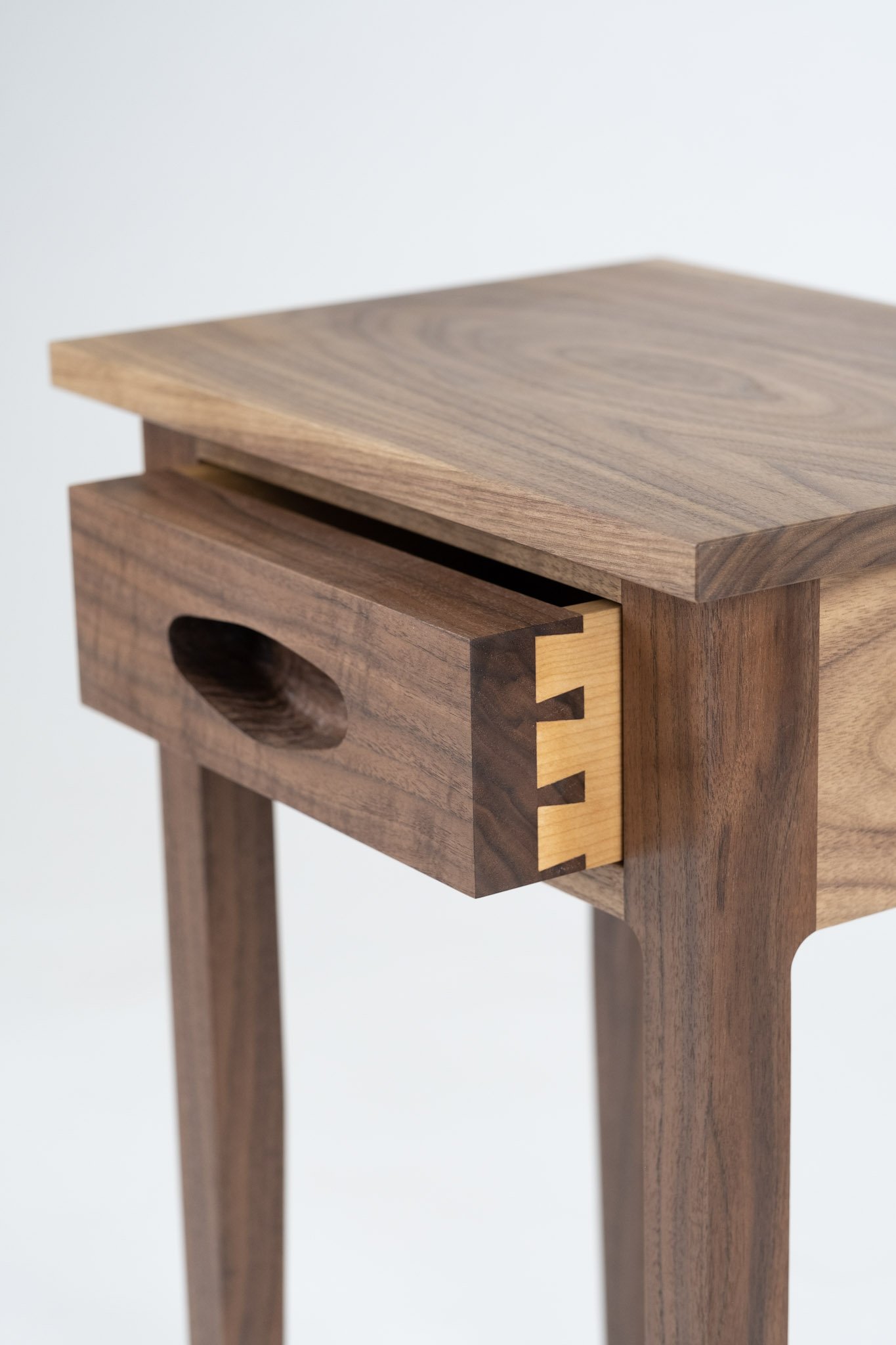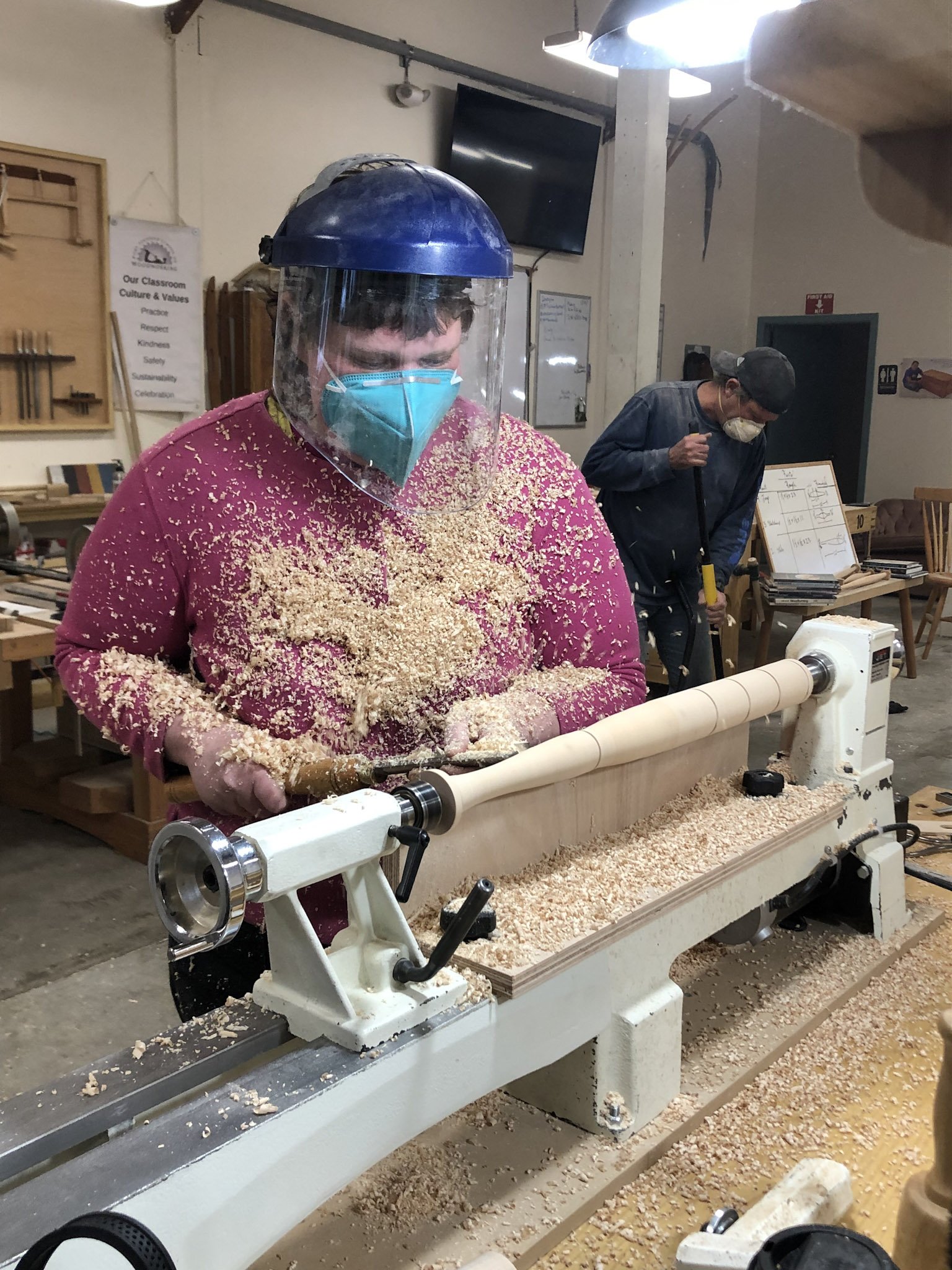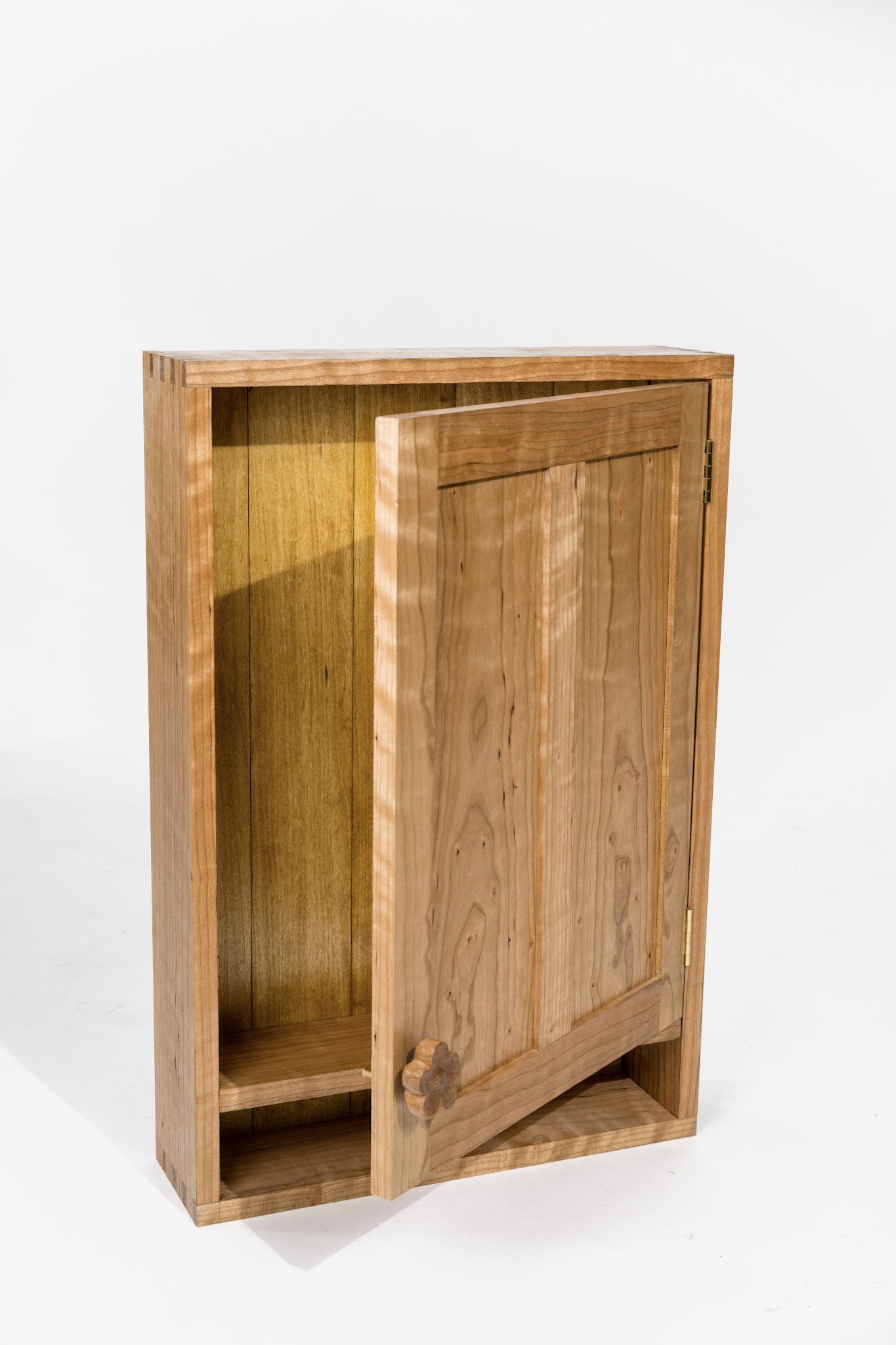Foundations of Woodworking I
12-week intensive program for beginners
Fall 2025
September 29 - December 19
Winter 2026
January 5 - March 27
About
Foundations of Woodworking I is a comprehensive introductory education intended to support anyone at the beginning of their woodworking journey. It offers foundational woodworking knowledge and practice to students interested in pursuing these lifelong skills professionally or for personal enrichment. This program would also be suitable for any student with some woodworking experience looking to deepen their knowledge through focused practice with the caring and knowledgeable support of an instructor. By the end of this program, students will be fluent in techniques and terminology and will have completed a portfolio of projects.
Throughout this 12-week intensive program students will develop an understanding of how to effectively shape and build with wood while considering its biological and mechanical properties. We begin by learning the safe and effective use of hand tools before gradually introducing machine tools. This enables students to develop a tactile and physical understanding of wood as a material and develop a sense of which tool and species are appropriate for which task. Students will learn how to manage a project from beginning to end, to produce a variety of joinery and simple furniture assemblies, as well as gluing and finishing techniques. We will also introduce students to furniture history and design.
We intend for this program to give students the tools, space, and time necessary to dive deep into their study and practice. We provide every student with a complete set of layout and bench tools to use and care for throughout the quarter. Four weeks into the course students are granted after-hours access to the bench room. The full-time format of this class also means that it is a physically and mentally demanding course. By gearing our instruction towards students’ individual growth we can support them in meeting their personal goals.
Course Description
We begin Foundations of Woodworking I orienting to our hand tools and benches by building some useful bench fixtures. While building tools that will serve them in their practice, students will be introduced to the fundamental techniques of planing, sawing, and chiseling. They also will learn about sharpening, accurate layout, and some simple and safe finishing techniques. Through building a small bench tote students will be introduced to joinery. They will learn to generate and incorporate curved shapes and begin to develop their eye for finishing details. In our tool tote project students will grow their hand tool proficiency by learning more complex joinery, such as dovetails. They will also be introduced to machine tool use and safety.
Students will be introduced to furniture construction by building a small side table with a drawer. They will grow their machine tool proficiency including producing joinery by machine. Basic design language will be introduced, and students will begin to play with customizing the shape of their work. Students will then spend one week learning how to turn spindles on a lathe. For the last project of the quarter, students will build a wall-hanging cabinet. They will learn frame and panel door construction and will build to their own design.
Students will receive presentations on botany, forestry, wood science, and lumber manufacturing processes throughout the session. This enriches students’ understanding of wood as a material and supports them in making appropriate decisions about different applications. Students will also develop a project management skillset, including generating a workflow, making a cutlist, tracking time and materials, and self-evaluating. We also will organize some local shop tours and visit a beloved local lumberyard.
Student Outcomes
Design – Read and create technical drawings; sketch ideas and develop a basic process for designing furniture
Shop practice, personal practice and project management – Maintain tools and workspaces; plan and manage projects
Hand tool proficiency – Use and maintain planes, chisels and saws
Machine tool proficiency – Use thickness planer, jointer, bandsaw, tablesaw, shaper and cordless drills
Joinery – Produce rabbets and dados, half-laps, stub-tenons, dovetails, through-tenons, blind mortise and tenons, and sliding dovetails
Glue-up and assembly – Use wood glue and clamps; understand assembly processes and proper clean-up techniques
Finishing and surface preparation – Use planes, scrapers, and sandpaper to prep surfaces for finish; apply oil finish, milk paint, and shellac
Stock selection, preparation, and handling – Identify common wood species and their working properties; develop a cutlist; select lumber; six-square wood by hand and machine
Shapes, curves and details – Produce edge details and surface textures with chisels and gouges; explore curved and rounded shapes with hand tools, bandsaw, and router
Sharpening and tool maintenance – Grind and hone chisels and plane blades with bench grinders and water stones
Course Projects
Project 1: Bench Fixtures A two-week module in which students make a straightedge, winding sticks, and combination bench hook/shooting board.
- Familiarize with tools, workspaces, and materials
- Learn techniques to support in joinery production
- Dimension, shape, and produce edge details with hand tools
- Understand mechanical fastening
- Prepare for and apply finish
Project 2: Bench Top Tote A one-week module in which students build a small, handled tote.
- Design by whole number proportions
- Basic joinery production with hand tools
- Generate a curved form
- Glue-up techniques
Project 3: Joiner’s Tool Tote A two-week module in which students build a large tool tote.
- Read and build from scale plans and lofting
- Increased complexity of hand tool joinery
- Milling by machine
Project 4: Small Side Table A three-week module in which students build a small table with a drawer.
- Copy and build from scale plans
- Drawer construction and installation
- Producing joinery by machine
- Customizing shape
Project 5: Turning A one-week module spent practicing and playing on the lathe.
Project 6: Cabinet A three-week module in which students design and build a wall-mounted cabinet with doors.
- Designing within parameters and drafting plans
- Frame and panel door construction
Optional Course Reading
These are texts that your instructors may reference during the course.
Understanding Wood: A Craftsman’s Guide to Wood Technology by R. Bruce Hoadley
The New Traditional Woodworker by founding member Jim Tolpin.
With the Grain: A Craftsman’s Guide to Understanding Wood by Christian Becksvoort
Northwest Trees by Stephan F. Arno
Tools
The school is fully equipped with sets of high-quality hand tools for each workbench. You do not need to bring tools to this course.
We recommend that you use our tools, and not buy tools prior to the class. Let this experience guide your future purchasing decisions. You are welcome to bring any tools you already own.
Prerequisites
For beginners.
Course Duration & Hours
Class hours are 9:00 am to 5:00 pm Monday through Friday, for 12 consecutive weeks in Building 315. Students are expected to arrive at 8:45 am to practice and prepare for the day. Instructors end their teaching day at 3:00, and a teaching assistant will be in the classroom until 5:00 pm.
The workshop is fully available to students during class time, Monday through Friday. After the first four weeks of the class, the bench room is available after hours and on weekends.
Housing
In collaboration with Fort Worden Hospitality, PTSW is offering communal housing within one of the many large historic homes next to the school. This housing is solely for intensive students attending Fall, Winter, and Spring courses. Read more here.
Other lodging and accommodations in Port Townsend can be found at this link. We also maintain a list of homeowners who enjoy hosting students and offer a range of accommodations and reasonable rates. Students are responsible for all communications with homeowners.
Tuition & Registration Details
Submission Deadline- Six months before course start
Submission Deadline Extension- One month extensions to submission deadline as needed (if course is not full)
How To Apply
Applications for the 12-week intensives are reviewed monthly, starting six months in advance of the course date. After reviewing applications, we will schedule a brief phone interview to get a better sense of your woodworking experience and make sure the class is a good fit for you.
There is no fee for applying. Applications are completed online by students. You will receive a confirmation of your application by email after you submit your application. Please contact us if you do not receive this email. If you have questions, please call us at 360-344-4455 or email info@ptwoodschool.org.
Scholarships
Our goal is to provide more access to fine woodworking education for all. If the tuition expense is a barrier, please consider applying for a scholarship. Please note: applications for scholarships must be submitted before registering for a course.
GI Bill® & VRE Funding for Veterans
Currently, both of our 12-week programs are eligible to be covered by your VA benefits. Our two consecutive 12-week intensives provide six months of fine woodworking training and furniture design. Details on how to use your VA benefits.
GI Bill® is a registered trademark of the U.S. Department of Veterans Affairs (VA). More information about education benefits offered by VA is available at the official U.S. government Web site at https://www.benefits.va.gov/gibill
Vocational Option
The Port Townsend School of Woodworking is licensed as a Washington State Private Vocational School. The school is not nationally accredited and regrettably cannot accept AmeriCorps Funds.
To learn more about our vocational option, including Vocational Rehabilitation for veterans which may cover tools, see our vocational catalog.




